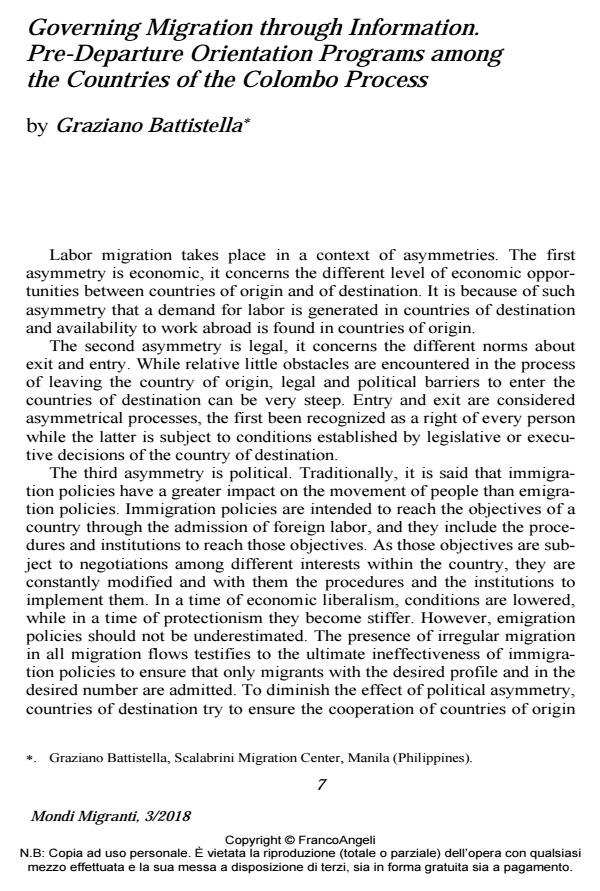Governing Migration through Information. Pre-Departure Orientation Programs among the Countries of the Colombo Process
Journal title MONDI MIGRANTI
Author/s Graziano Battistella
Publishing Year 2018 Issue 2018/3
Language English Pages 19 P. 7-25 File size 211 KB
DOI 10.3280/MM2018-003001
DOI is like a bar code for intellectual property: to have more infomation
click here
Below, you can see the article first page
If you want to buy this article in PDF format, you can do it, following the instructions to buy download credits

FrancoAngeli is member of Publishers International Linking Association, Inc (PILA), a not-for-profit association which run the CrossRef service enabling links to and from online scholarly content.
Migration is governed through instruments that increase or decrease the asymmetries that characterize the migratory phenomenon. One such asymmetry is the information asymmetry between migrants, employers and countries of destination. To provide migrants with accurate information on what they will face after migrating is to diminish the risks they will face. It is also an insurance to employers and countries of destination that migrants possess the minimum requirements for their insertion. Thus, information can be a useful tool to improve the governance of migration. This article examines the experience of pre-departure orientation programs provided by the countries of the Colombo Process as a case study. After comparing the various programs, the article suggests how to adopt a common program, also with the cooperation of destination countries. It also highlights the difficulties inherent in this process, which do not allow yet adopting a certified instrument for the reduction of information asymmetry.
Keywords: Information asymmetry; migration governance; Colombo Process
Graziano Battistella, Governing Migration through Information. Pre-Departure Orientation Programs among the Countries of the Colombo Process in "MONDI MIGRANTI" 3/2018, pp 7-25, DOI: 10.3280/MM2018-003001